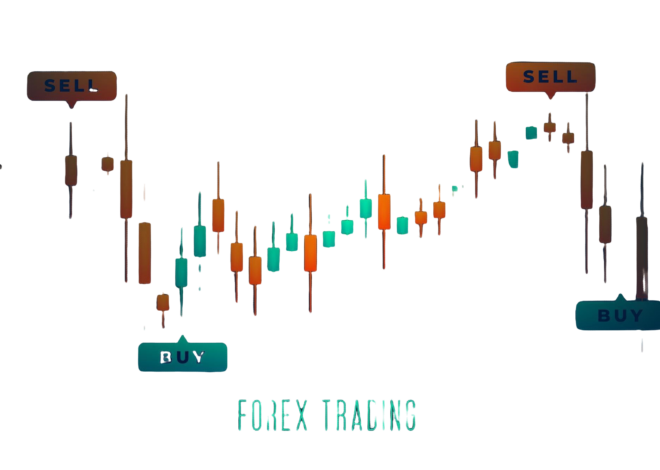
Harness the Power of Forex Data APIs to Dominate the Market
In the rapidly evolving world of foreign exchange trading, staying ahead of the competition requires leveraging advanced tools and technologies. One of the most powerful resources available to traders today is the Forex Data API. These APIs offer real-time and historical data, enabling traders to make informed decisions and optimize their strategies. In this comprehensive guide, we explore the best practices for utilizing Forex Data APIs and how they can help you dominate the market.
Understanding Forex Data APIs
What is a Forex Data API?
A Forex Data API is an application programming interface that provides access to real-time and historical data on currency exchange rates. These APIs allow developers to integrate foreign exchange data into their applications, websites, or trading platforms. By using a Forex Data API, traders can automate the retrieval of exchange rates, monitor market trends, and execute trades based on the latest market information.
Benefits of Using Forex Data APIs
- Real-Time Data Access: Gain access to up-to-the-minute exchange rates and market data.
- Historical Data: Analyze past market performance to inform future trading strategies.
- Automation: Automate trading processes and reduce manual intervention.
- Integration: Seamlessly integrate with trading platforms, financial software, and custom applications.
- Cost-Effective: Reduce costs associated with manual data collection and analysis.
Key Features of the Best Forex APIs
When selecting a Forex Data API, it is crucial to consider the following features to ensure you are getting the best value:
1. Comprehensive Data Coverage
The best Forex Data APIs provide extensive coverage of global currency pairs, including major, minor, and exotic pairs. This ensures you have access to a wide range of data points to make informed trading decisions.
2. High Frequency of Updates
For traders, having access to frequently updated data is essential. Top-tier APIs offer real-time updates with minimal latency, ensuring you are always working with the latest market information.
3. Historical Data Access
In addition to real-time data, historical data is invaluable for backtesting trading strategies and conducting thorough market analysis. Look for APIs that offer extensive historical data spanning several years.
4. Robust Security and Reliability
Security is paramount when dealing with financial data. The best APIs use advanced encryption and secure protocols to protect your data. Additionally, reliable APIs have high uptime and offer consistent performance, ensuring uninterrupted access to critical information.
5. Easy Integration and Documentation
A well-documented API with comprehensive guides and examples can significantly streamline the integration process. Ensure the API you choose provides clear and detailed documentation, as well as support for popular programming languages.
Top Forex Data APIs to Consider
Here are some of the leading Forex Data APIs that stand out in the market:
1. Alpha Vantage
Alpha Vantage offers a powerful and reliable Forex Data API, providing real-time and historical exchange rates for over 100 currency pairs. With high-frequency updates and a robust security framework, Alpha Vantage is a top choice for traders seeking comprehensive data coverage and reliability.
2. Open Exchange Rates
Open Exchange Rates is known for its simplicity and ease of use. It provides real-time and historical exchange rate data for over 200 currencies, along with straightforward documentation and flexible integration options.
3. OANDA API
OANDA offers a highly reliable Forex Data API with real-time exchange rates, historical data, and advanced charting capabilities. OANDA’s API is favored by professional traders for its accuracy and extensive data coverage.
4. XE Currency Data API
XE provides an extensive range of currency data, including real-time and historical exchange rates for over 160 currencies. With a focus on accuracy and reliability, XE’s API is a trusted resource for traders worldwide.
How to Use Forex Data APIs to Your Advantage
1. Automated Trading Systems
By integrating a Forex Data API into your trading platform, you can automate the process of retrieving exchange rates and executing trades. This not only saves time but also ensures you are making decisions based on the most current market data.
2. Enhanced Market Analysis
Utilize the historical data provided by Forex APIs to conduct in-depth market analysis. By examining past trends and patterns, you can develop more effective trading strategies and improve your forecasting accuracy.
3. Real-Time Alerts and Notifications
Set up real-time alerts and notifications to stay informed of significant market movements. This enables you to react quickly to changes in exchange rates and capitalize on trading opportunities as they arise.
4. Custom Financial Applications
Develop custom financial applications that leverage Forex Data APIs to provide users with real-time exchange rates, currency conversion tools, and market analysis features. This can add significant value to your financial services offerings.
Choosing the Right Forex Data API for Your Needs
When selecting a Forex Data API, consider your specific requirements and the features that are most important to you. Factors such as data coverage, update frequency, security, and ease of integration should all play a role in your decision-making process. By choosing a reliable and comprehensive API, you can gain a competitive edge in the foreign exchange market.
Conclusion
Harnessing the power of Forex Data APIs is essential for any trader looking to dominate the market. With access to real-time and historical data, advanced automation capabilities, and seamless integration options, these APIs provide the tools you need to make informed trading decisions and stay ahead of the competition. By selecting the best Forex Data API for your needs, you can enhance your trading strategies, improve market analysis, and ultimately achieve greater success in the world of foreign currency exchange.



